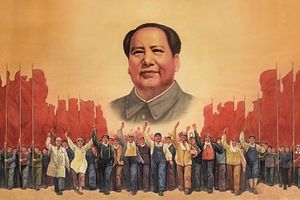China’s Great Proletarian Cultural Revolution began 50 years ago. On May 16, 1966, the Communist Party’s Central Committee declared that capitalist agents had sneaked into leading positions:
Once conditions are ripe, they will seize political power and turn the dictatorship of the proletariat into a dictatorship of the bourgeoisie. Some of them we have already seen through; others we have not. Some are still trusted by us and are being trained as our successors, persons like Khrushchev, for example, who are still nestling beside us.
With these astonishing words, Maoists called for an overthrow of the political order created in 1949. This “May 16 Circular” effectively marks the moment when all hell broke loose, initiating an era of dramatic and turbulent politics that lasted until Mao Zedong’s death in 1976. Any Chinese citizen over 60 was shaped by that difficult decade, and many younger Chinese have felt its lingering, if sometimes shadowy, influence. The Cultural Revolution’s drama lay in its politics. Four broader perspectives put these politics in context: their impact upon personal relations, economic growth, ties to the global community, and the question of whether the Cultural Revolution could happen again.
Great Disorder Under Heaven: Cultural Revolutionary Politics
The 1949 revolution enjoyed many successes in its early years, including the end of domestic civil war, rapid economic growth, and fighting the United States to a truce in the Korean War. But the Party stumbled badly with the 1958 Great Leap Forward and its subsequent famine. Mao’s reputation was tarnished, and other leaders gained influence, notably President Liu Shaoqi and Party Secretary-General Deng Xiaoping. These urged more conservative policies: limited experiments with capitalist agriculture to temper collectivization, reliance upon the knowledge of experts instead of the enthusiasm of amateurs, and a broader loosening of political controls. Maoists believed such initiatives imperiled the revolution, leading to a stand-off in the early 1960s.

































